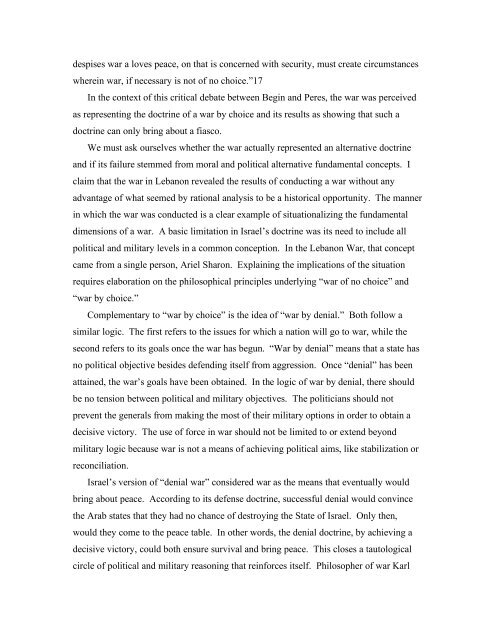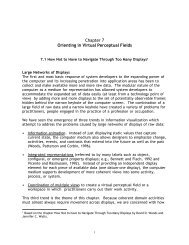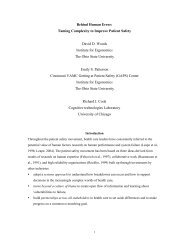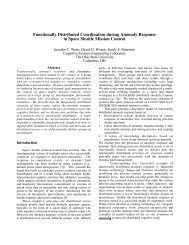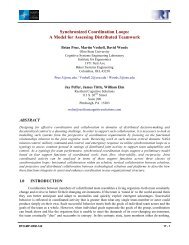Fundamental Surprises Zvi Lanir Decision Research 1201 Oak ...
Fundamental Surprises Zvi Lanir Decision Research 1201 Oak ...
Fundamental Surprises Zvi Lanir Decision Research 1201 Oak ...
- No tags were found...
You also want an ePaper? Increase the reach of your titles
YUMPU automatically turns print PDFs into web optimized ePapers that Google loves.
despises war a loves peace, on that is concerned with security, must create circumstances<br />
wherein war, if necessary is not of no choice.”17<br />
In the context of this critical debate between Begin and Peres, the war was perceived<br />
as representing the doctrine of a war by choice and its results as showing that such a<br />
doctrine can only bring about a fiasco.<br />
We must ask ourselves whether the war actually represented an alternative doctrine<br />
and if its failure stemmed from moral and political alternative fundamental concepts. I<br />
claim that the war in Lebanon revealed the results of conducting a war without any<br />
advantage of what seemed by rational analysis to be a historical opportunity. The manner<br />
in which the war was conducted is a clear example of situationalizing the fundamental<br />
dimensions of a war. A basic limitation in Israel’s doctrine was its need to include all<br />
political and military levels in a common conception. In the Lebanon War, that concept<br />
came from a single person, Ariel Sharon. Explaining the implications of the situation<br />
requires elaboration on the philosophical principles underlying “war of no choice” and<br />
“war by choice.”<br />
Complementary to “war by choice” is the idea of “war by denial.” Both follow a<br />
similar logic. The first refers to the issues for which a nation will go to war, while the<br />
second refers to its goals once the war has begun. “War by denial” means that a state has<br />
no political objective besides defending itself from aggression. Once “denial” has been<br />
attained, the war’s goals have been obtained. In the logic of war by denial, there should<br />
be no tension between political and military objectives. The politicians should not<br />
prevent the generals from making the most of their military options in order to obtain a<br />
decisive victory. The use of force in war should not be limited to or extend beyond<br />
military logic because war is not a means of achieving political aims, like stabilization or<br />
reconciliation.<br />
Israel’s version of “denial war” considered war as the means that eventually would<br />
bring about peace. According to its defense doctrine, successful denial would convince<br />
the Arab states that they had no chance of destroying the State of Israel. Only then,<br />
would they come to the peace table. In other words, the denial doctrine, by achieving a<br />
decisive victory, could both ensure survival and bring peace. This closes a tautological<br />
circle of political and military reasoning that reinforces itself. Philosopher of war Karl


